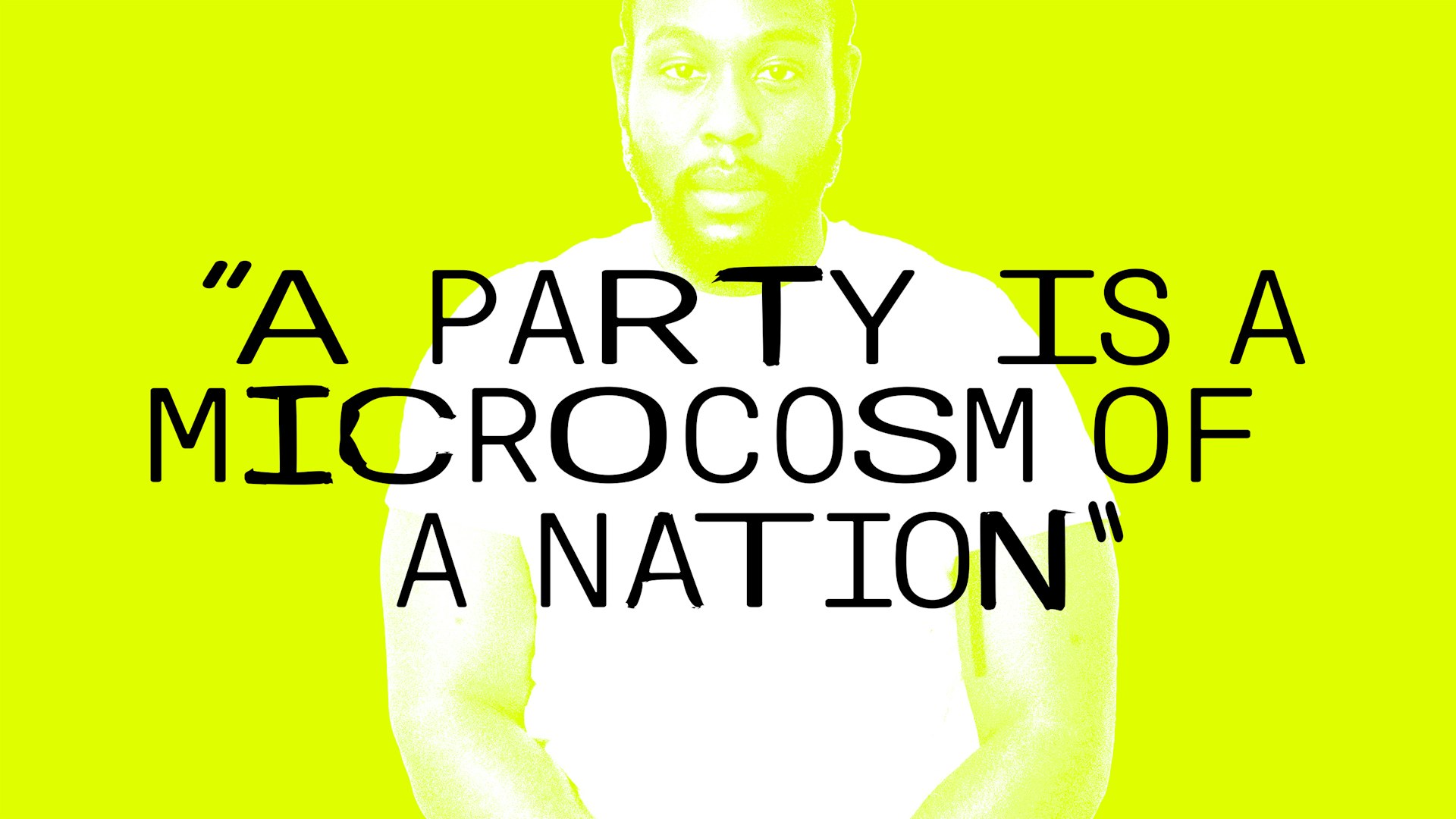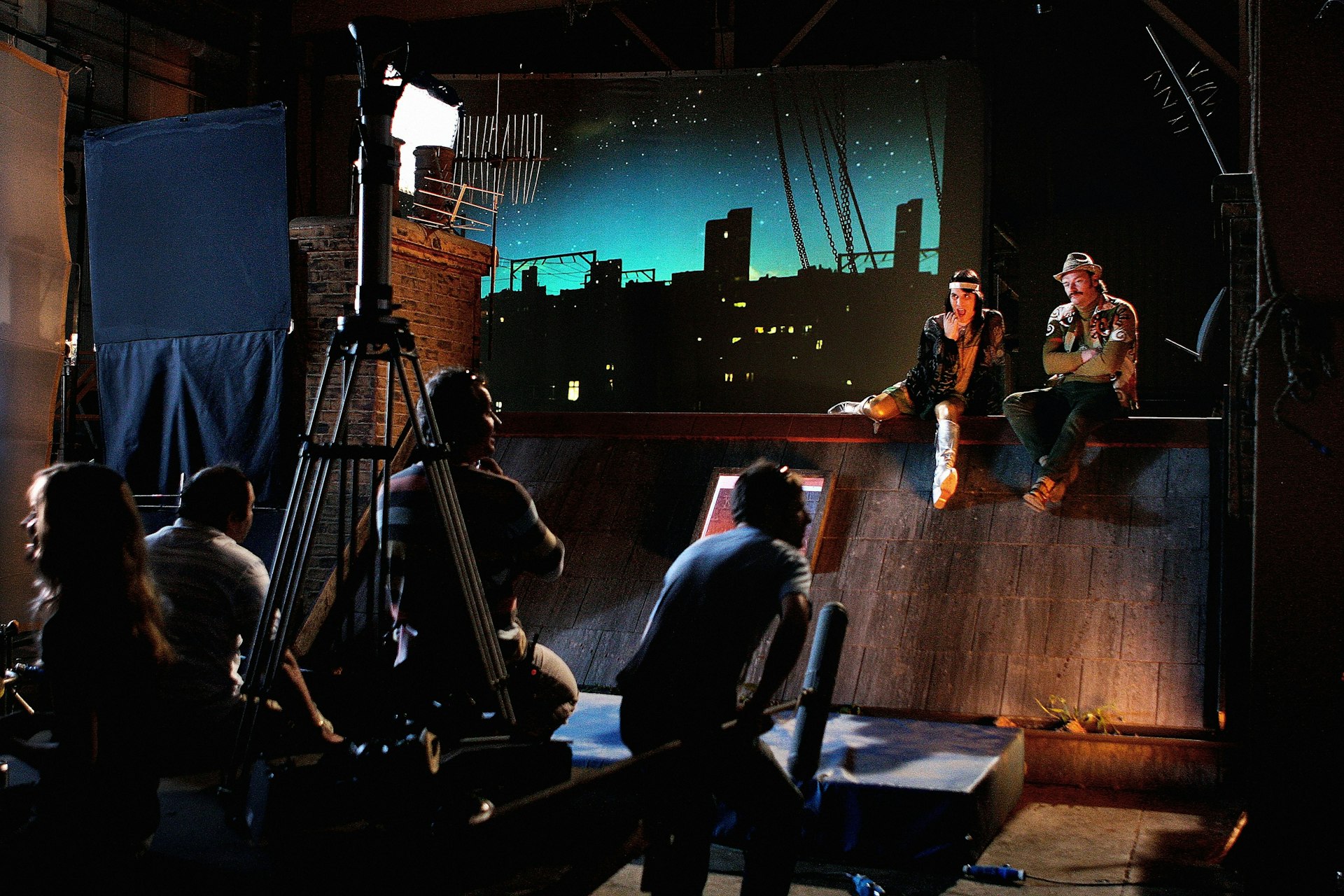Cancel culture: when celebrity worship goes wrong
- Text by Ayishat Akanbi
- Illustrations by Simon Hayes

The world of online cancel culture is a neverending one. Every week, we manicure our rage into tweets at yet another celebrity who’s fallen short of our political expectations. Once we’ve finished consigning them to the wilderness, we go again.
Terms and conditions of cancellation include fronting ‘problematic’ campaigns (Kendall Jenner and Pepsi), having friendships with public enemies (Kanye West and Donald Trump), and holding ignorant, outdated opinions (Kevin Hart). But these are the less serious crimes. Other controversies such as abuse, discrimination and violence can be met with a more severe online backlash, allowing victims who have spent years suffering in silence to find the courage to expose their abusers.
However, beyond the obvious cases, cancel culture has made things much more complicated. It has changed the way we view our favourite entertainers. For so long, we’ve been convinced that velvet vocal cords, rhyming skills, money, musicianship and good looks award individuals with a refinement that’s lost on us mere mortals. We’ve put talent on a moral purity pedestal.
But it shouldn’t be a surprise when a rapper whose lyrical arsenal comprises of thots, Balenciaga’s, and Grey Goose doesn’t meet our feminist yardsticks. It shouldn’t be shocking when a pop princess whose visuals drip with airbrushing and perfectly packaged happiness doesn’t have an opinion on the conflict in Palestine. While we can’t judge who someone is through their art, we can make rational guesses on who they aren’t.
Ask yourself: do your favourite entertainers rush to give an opinion on political current affairs? Do they have a public affiliation with an organisation committed to social justice? Do they get papped in a modest disguise at protests? More importantly, should they have to? Could it be that you’ve projected a fantasy onto your faves because they belong to your subculture, age group, race or sexual preference? If you’ve answered no to the first set of questions, it’s time to develop the skills to become more critically engaged with what you are digesting.
Nowadays, the social climate is hot. The ability to sing and perform tight choreography at the same time is not enough – now, you’ve got to be woke as fuck too! The desperation to sell records to a streaming society, and the desire to keep people watching TV instead of scrolling through their phones, has many celebrities craving to be part of the wider collective conversation. If they’re accused of staying silent on salient issues, they try to become more political.
When our faves let us down through ignorance and violence we rush to remind strangers of our disapproval. But in the quest for a fairer world, we should remember that the idea of moral and political purity is a figment of the imagination. It does not exist. It is a myth and fairytale, maintained to give us something to aspire to.
When we only celebrate those who are perceived to be powerful instead of thoughtful, we set ourselves up for disappointment. Cancel culture reflects the blind faith we put into the entertainment industries. The celebrities we attack are the face of an invisible institution – one that thrives off the ignorance of talented people. They don’t hold power as much as they hold influence.
The birth of a political awakening is like hearing a song months before it becomes popular. You can’t wait to let everyone know what you only learned the other day. But the compulsion to cancel instead of counsel leaves us fractured. Calling out injustice, sexual abuse, corruption, and industry-protected violence is necessary: institutional oppression thrives off ignorance, so to highlight those ills is a direct threat. But too often we’re aiming at the wrong target.
Where is the line between problematic and ignorance? Most people only care about what they believe affects them: it’s what they’ll have the most research on, the most experience with. But to insult someone who doesn’t live your reality for failing to consider you is to oversimplifying the human experience; humiliating people for insensitive comments they made years ago denies the possibility of change.
Our greatest weapon against power is our attention: where we focus it, and what we choose to disengage from. In light of famous errors, we may learn the value of celebrating people for their ideas instead of their looks and their creative talent. I imagine we’d face less disappointment if we looked more to the work of those committed to addressing our social inequity. But even then, if you were to investigate the histories of even the most prolific activists, you will find chaos. Not because they’re hypocrites – but because they’re human. If the crux of your activism is pointing out the imperfections of others, you may have started spewing some of the very poison you fight against.
Follow Ayishat Akanbi on Twitter.
Enjoyed this article? Like Huck on Facebook or follow us on Twitter.
Latest on Huck

Three decades behind the scenes of the music industry
Eddie Otchere’s ‘Spirit Behind the Lens’ is a story of music and culture that crosses and transcends borders.
Written by: Isaac Muk

Barry Keoghan, Franz Rogowski and Andrea Arnold on ‘Bird’
The new issue of Little White Lies brings Andrea Arnold’s sixth feature to life with a thematic voyage down the Thames estuary.
Written by: Maisy Hunter

“A party is a microcosm of a nation”: Caleb Femi on the decline of the house party
To celebrate the publication of his new collection ‘The Wickedest’, Isaac Muk caught up with Femi to talk more about the work, the future of the shoobs, and discuss why having it large on a Saturday night should be cherished.
Written by: Isaac Muk

Celebrating 20 years of The Mighty Boosh
A new exhibition takes a look behind the scenes of the iconic show two decades after its BBC3 premiere.
Written by: Isaac Muk

We Run Mountains: Black Trail Runners tackle Infinite Trails
Soaking up the altitude and adrenaline at Europe’s flagship trail running event, high in the Austrian Alps, with three rising British runners of colour.
Written by: Phil Young

The organisation levelling the playing field in the music industry
Founded in 2022, The Name Game is committed to helping female, non-binary and trans people navigate the industry.
Written by: Djené Kaba